John Mayall – The Turning Point
A couple of years back, I wrote about my late discovery of John Mayall. (Well, isn’t that the theme of this blog? My late discovery of nearly everyone?) At that time, my discovery that Mayall’s blues weren’t necessarily just the simple British blues that I had assumed led me to a small burst of buying, and since then, it’s become an even bigger burst.
I’ve added six John Mayall albums to my collection since that time – every one of them a little (or a lot) different, and every one of them really good. And while his first records like Blues Breakers and Crusade were critical starting points for some of the greats of British rock and blues, they’re not nearly as interesting as what Mayall did after he stopped finding the next guitar sensation.
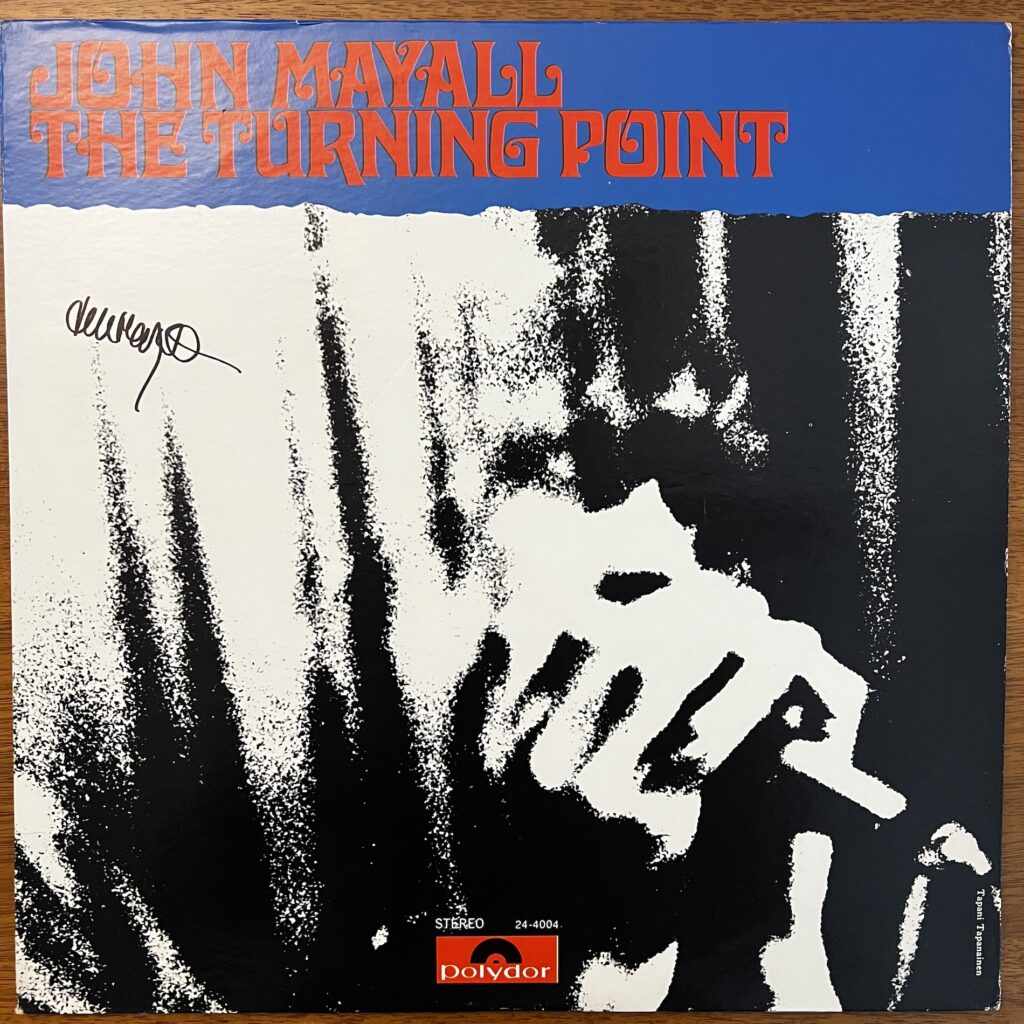
That’s literally what 1969’s The Turning Point is about, as he explains on the back cover:
“The time is right for a new direction in blues music. Having decided to dispense with heavy lead guitar an drums, usually a ‘must’ for blues groups today, I set about forming a new band which would be able to explore seldom-used areas within the framework of low volume music. This album is the result of thi experiment and it was recorded live at the Fillmore East Theater in New York after only four weeks experience of each other’s playing.”
So it’s just Mayall with Jon Mark on acoustic finger-style guitar, Steve Thompson on bass, and Johnny Almond providing tenor and alto sax, flutes, and mouth percussion, recorded live on July 12, 1969. The sound is quality for the time (somehow the Fillmore seems always to have gotten it right).
It opens with “The Laws Must Change,” which was about “a few personal observations of police vs. youth and the drug situation,” which remains timely, sorry to say. Everything on here is a groove – his tribute to J.B. Lenoir, a love letter to California, “Thoughts About Roxanne.” (it’s interesting to me that Mayall frequently listed the keys of his songs – something that in the old days required a musical ear to figure out. Now I just put it into Chordify, as I don’t have that ear.
There are also, it must be said, some staples of late ’60s/early ’70s music, straight-up pedophilia and “ramblin’ man” nonsense. “She’s now fifteen,” my wife pointed out as “Saw Mill Gulch Road” played, and I’m just gonna have to not hear the lyrics from here on out. And “Room To Move” is described as “a musician’s need for personal freedom to love without entanglement.” Hoo boy.
But overall, I haven’t been able to stop listening to this record this week. It’s just remarkable.
And, I have two copies of this! One of them, found in 2023, was in perfectly serviceable condition, but then in 2024 my friend at Forever Changes gave me the gift of a pristine copy signed by John Mayall! Signed not only outside but in (on the booklet)!
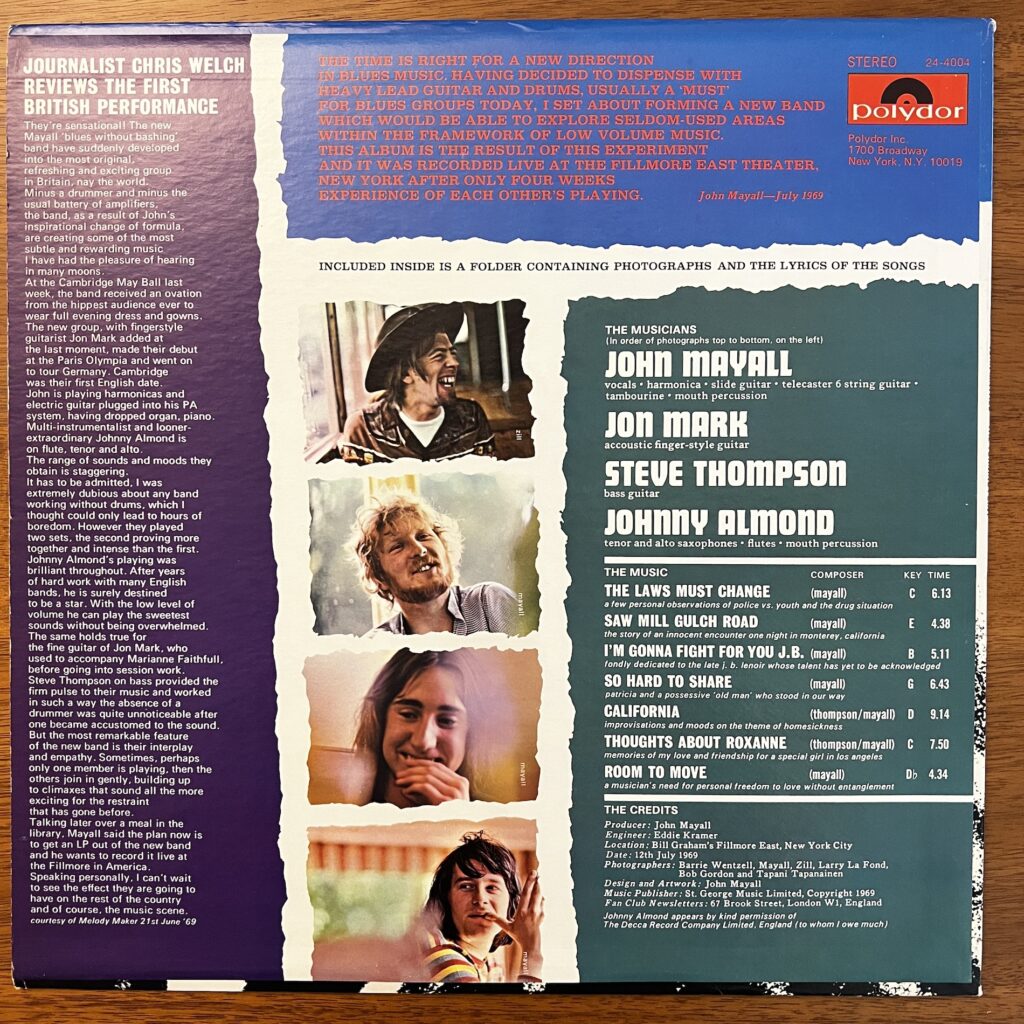
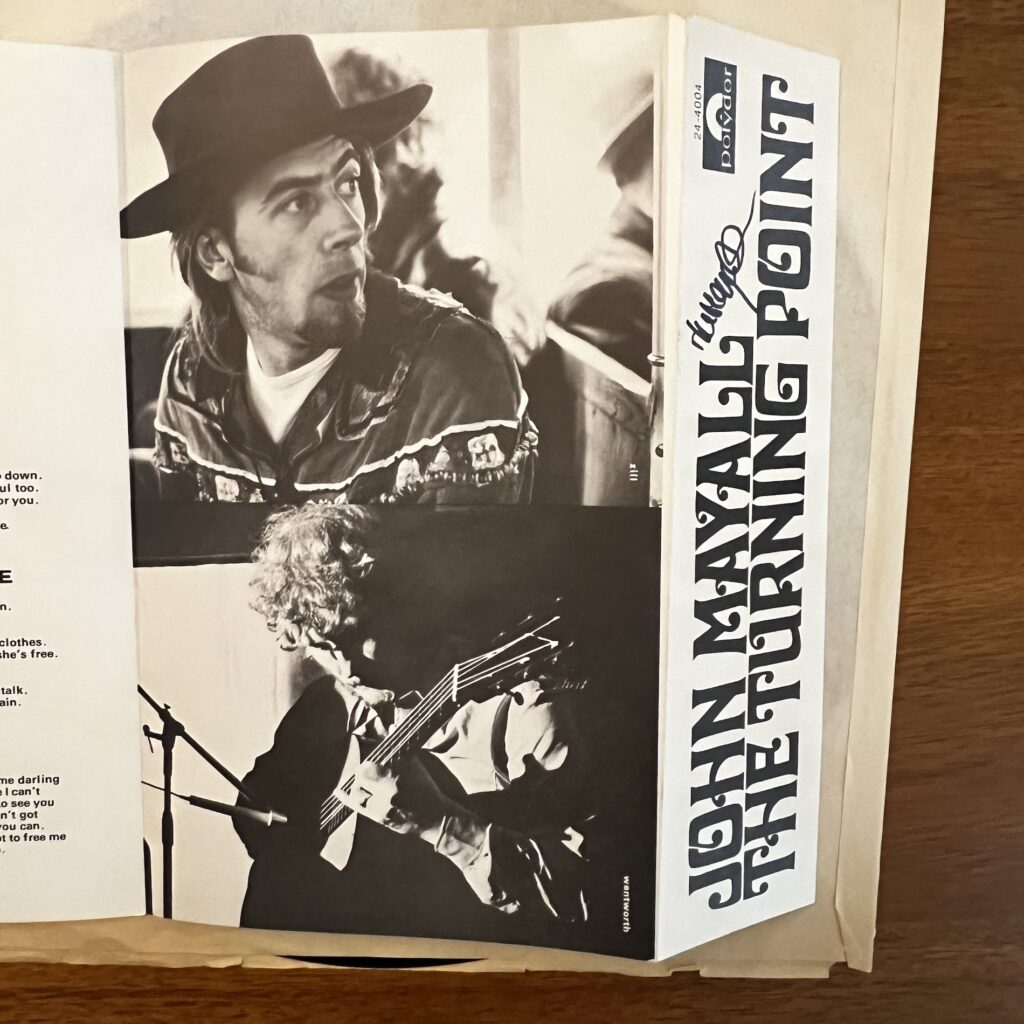
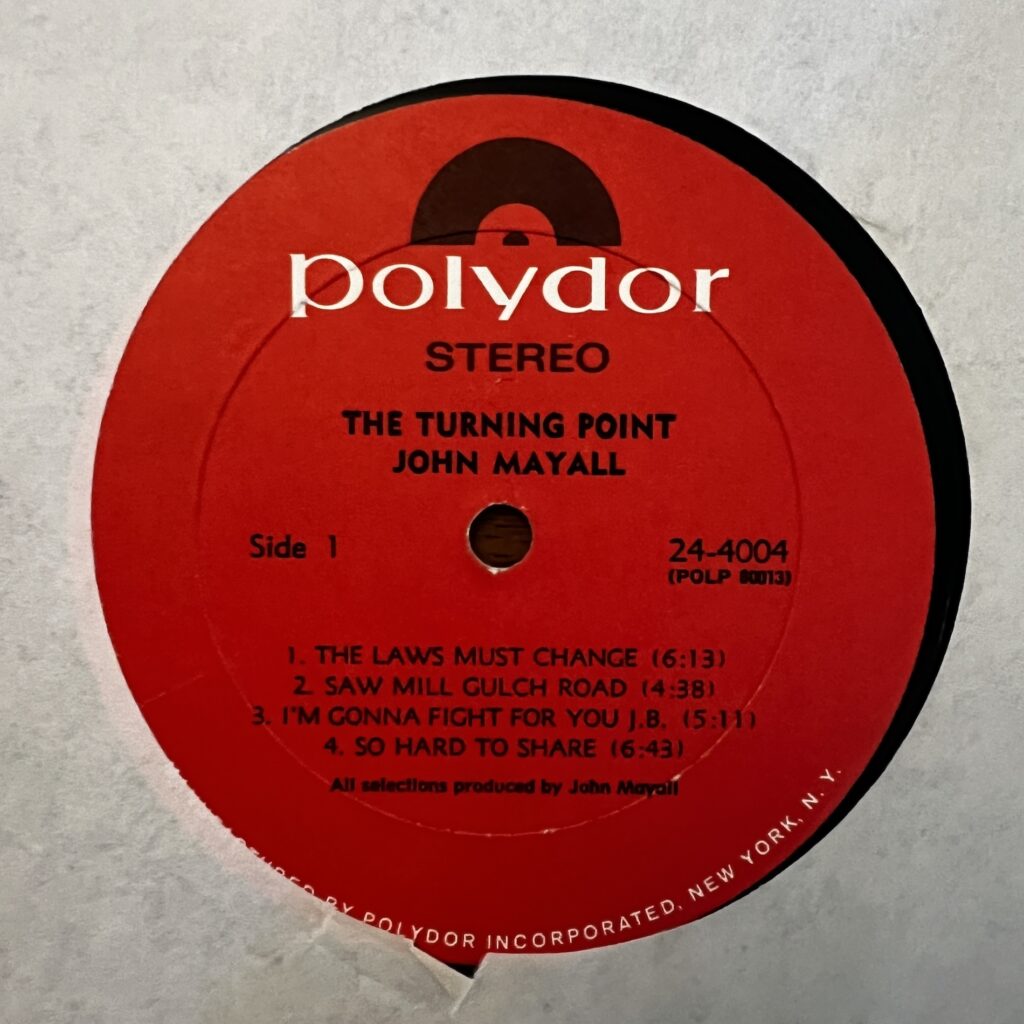
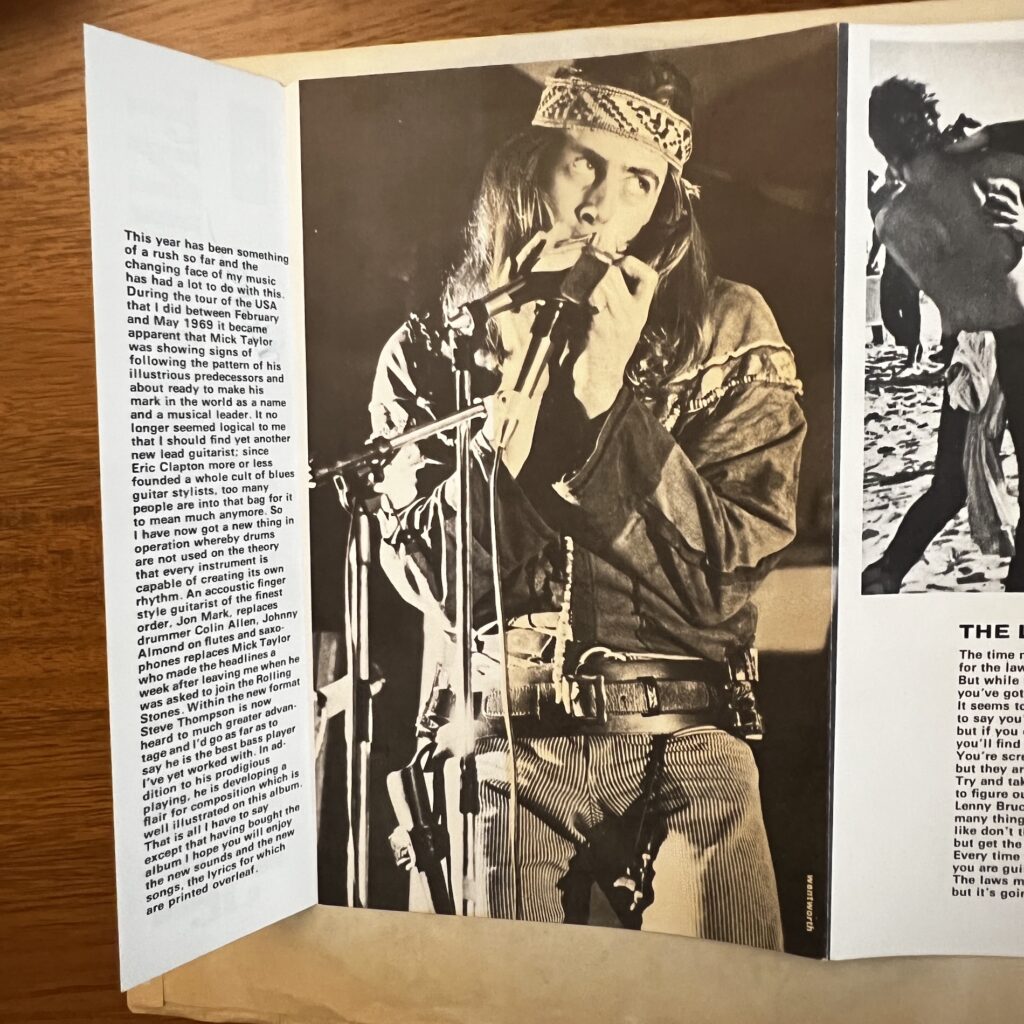
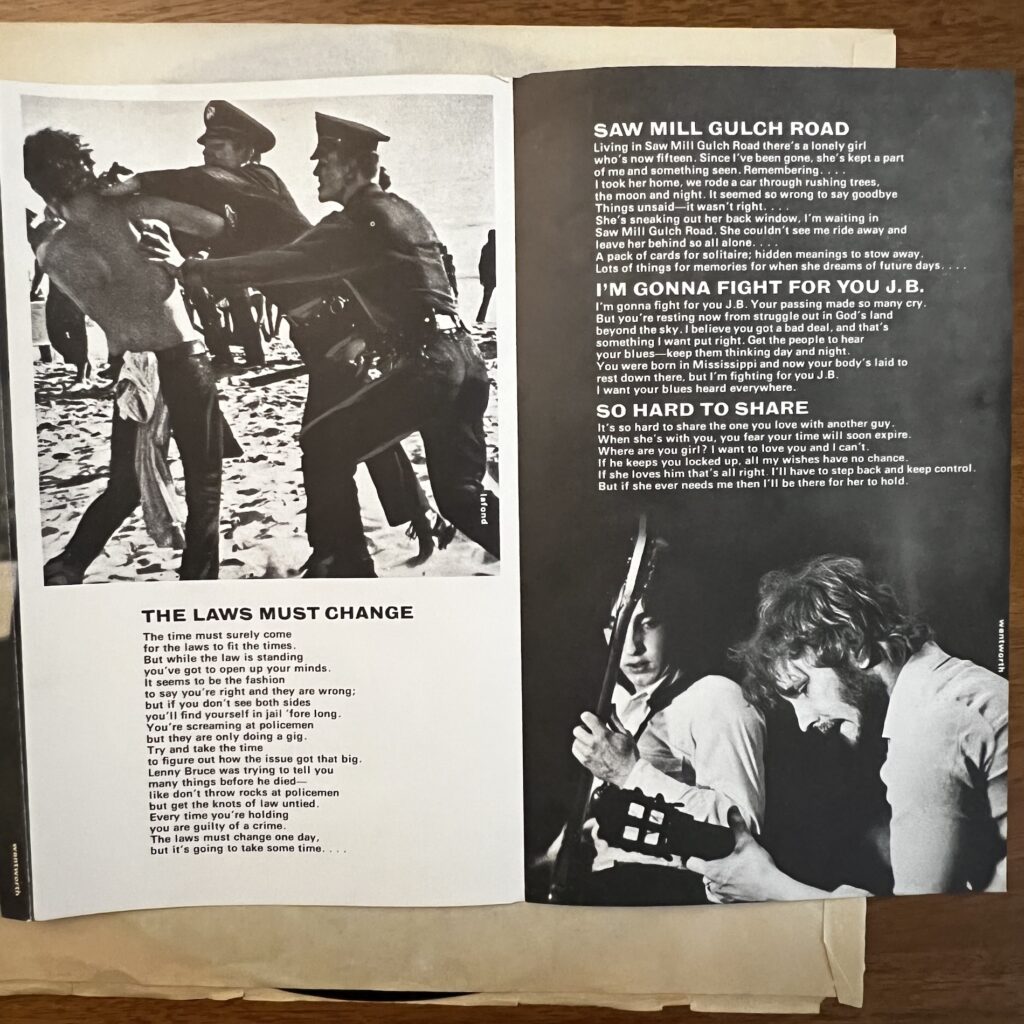
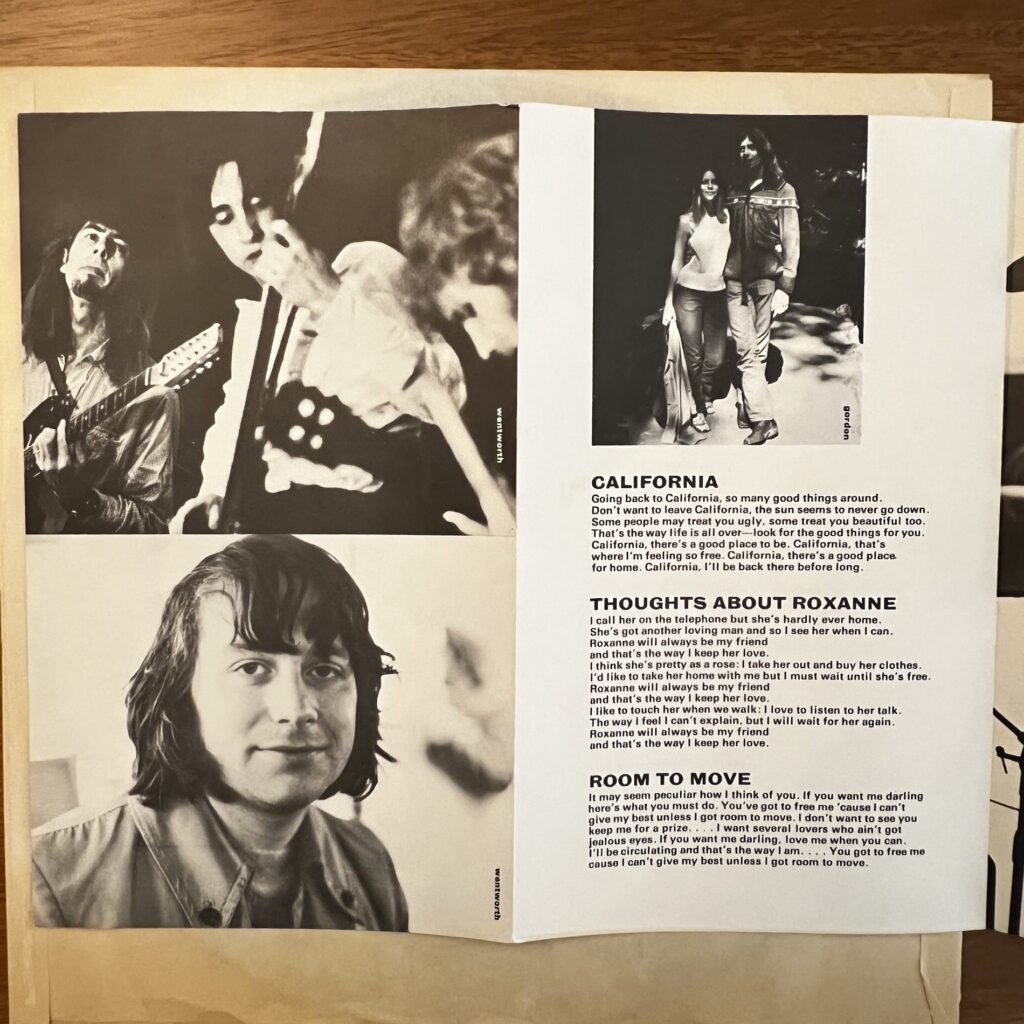
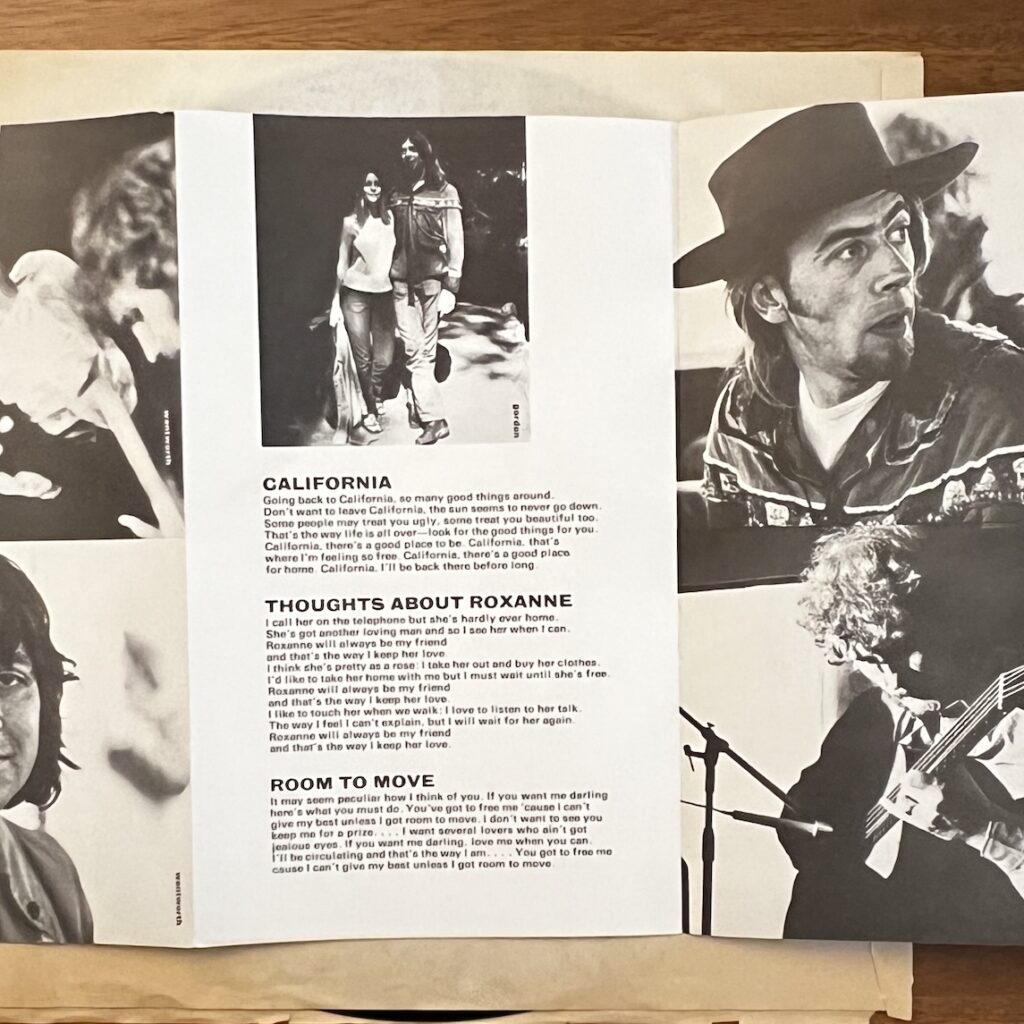
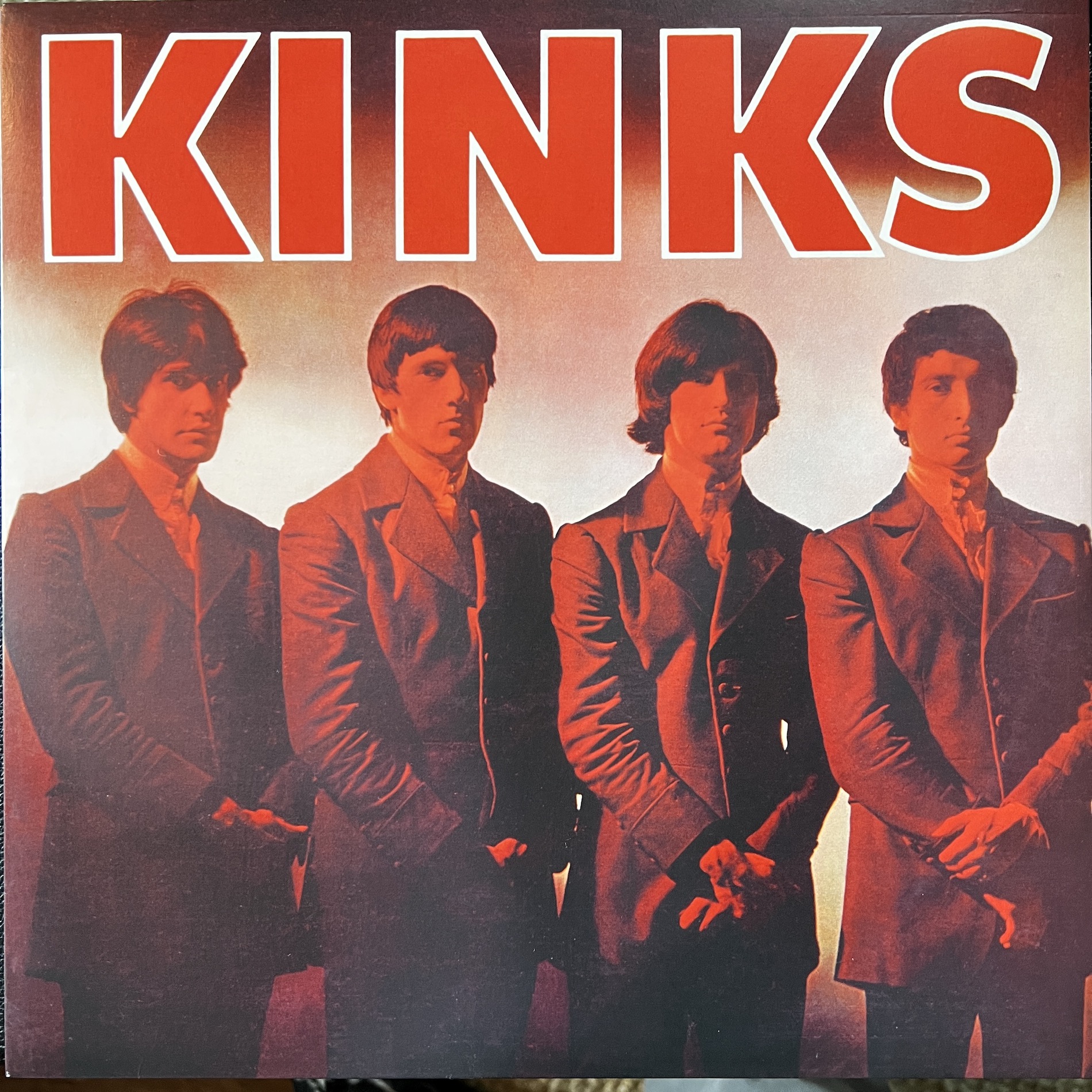

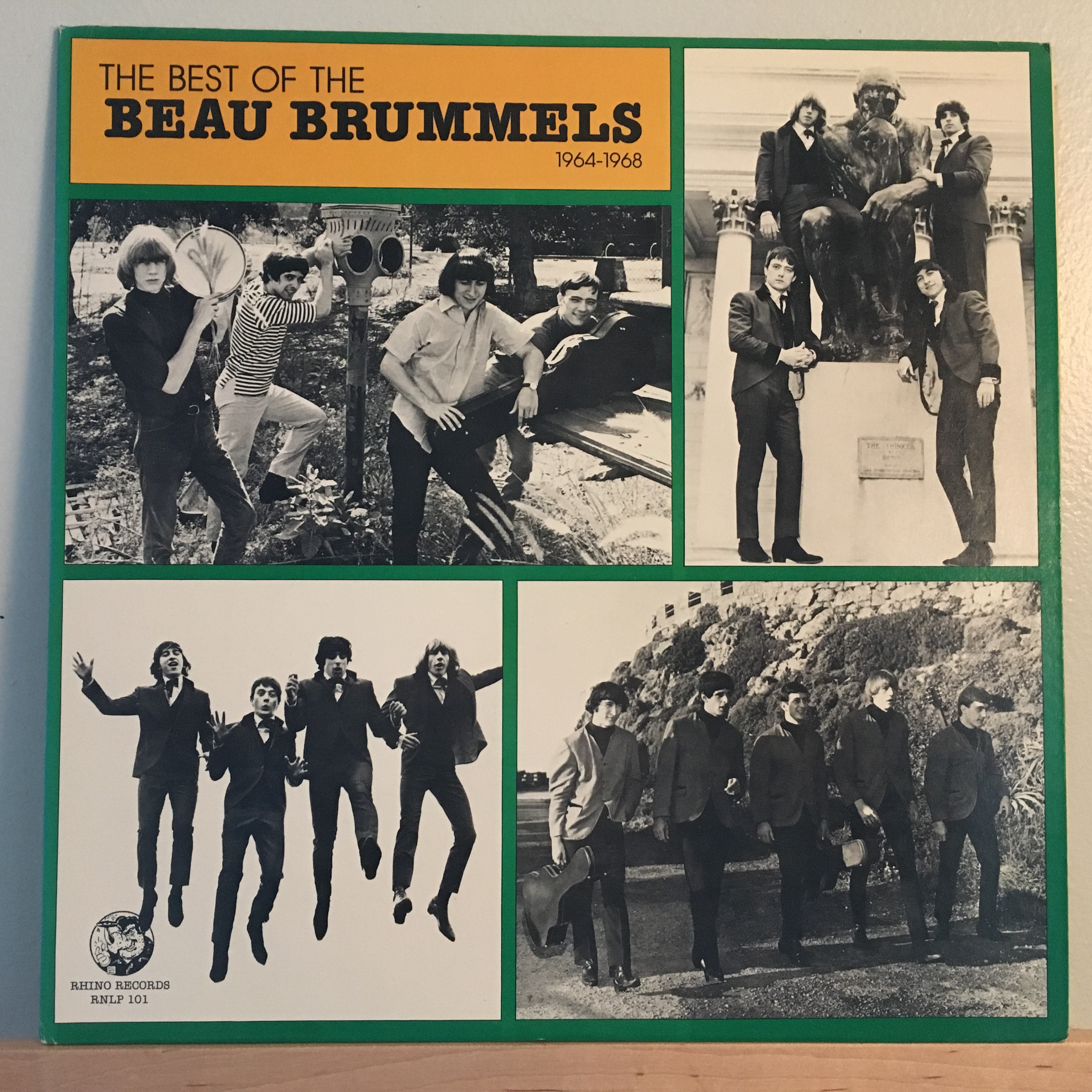
Things We Said Today